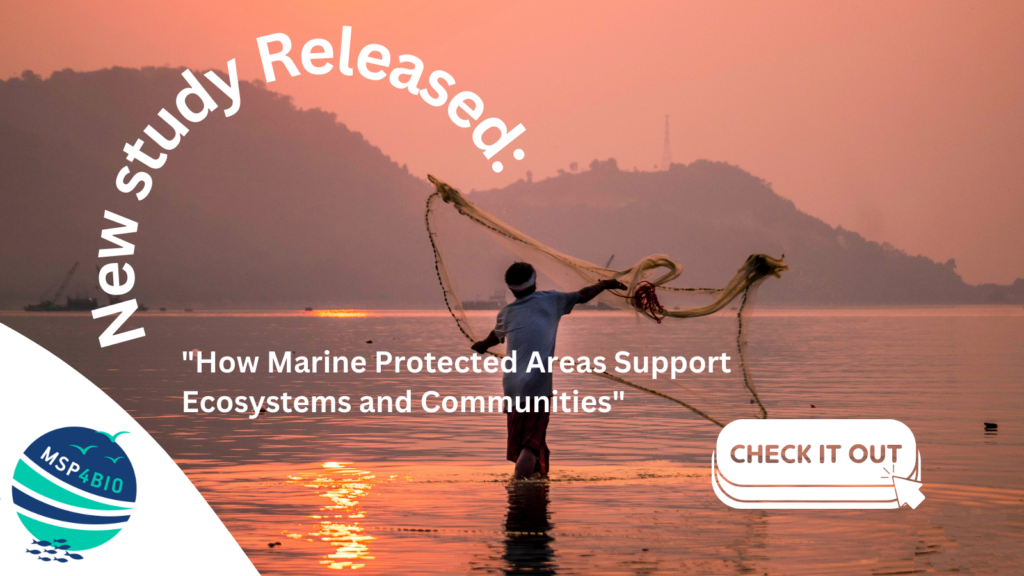Author: Camila Pegorelli Gomes, University of the Cadiz

Marine Protected Areas (MPAs) are special zones in the ocean where human activities are carefully managed to protect marine life and ecosystems. While MPAs are primarily about preserving biodiversity and keeping marine ecosystems healthy, they are also vital for supporting human communities.
MPAs help sustain essential activities such as fishing, tourism, and scientific research. By protecting key areas, they allow marine species to thrive, which supports fishing industries and helps maintain local food supplies. Additionally, MPAs provide beautiful natural landscapes, which are popular tourist attractions, generating income for local communities through eco-tourism and recreational activities.
However, managing MPAs is not always straightforward. Different groups—like fishermen, conservationists, businesses, and local residents—may have conflicting interests. It’s crucial to involve all stakeholders in decision-making to ensure that MPAs balance environmental protection with the needs of local communities.
The socio-economic value of MPAs goes beyond environmental protection; they are essential for improving human well-being. MPAs help ensure food security, preserve cultural heritage, and provide economic opportunities through sustainable industries like eco-tourism. Protecting these marine areas not only safeguards the environment but also contributes to long-term economic and social stability for coastal communities.
Key Findings
In the study “Marine Protected Areas as Socio-Economic Systems: A Method for Defining Socio-Economic Criteria in Marine Planning”, developed by our partners of the University of Cádiz:
Javier Sanabria, Camila Pegorelli, Javier Onetti, Maria de Andrés and Silvia Rayo; the socio-economic criteria related to marine planning, such as Marine Spatial Planning (MSP) and MPAs, were explored and linked to the ecosystem services they provide. These criteria are closely tied to the benefits that marine ecosystems offer to human communities. Below are the key findings from the research:
- Ecosystem Services Support Human Well-Being: Ecosystems provide vital services such as food, recreation, and biodiversity conservation, which are essential for sustaining human livelihoods and well-being.
- Socio-Economic Criteria for Marine Planning: The study identified crucial socio-economic factors like local economic activities, cultural heritage, and community reliance on marine resources that guide the development and management of MPAs.
- Stakeholder Involvement: Engaging local communities and stakeholders in marine management ensures that policies reflect their needs, making conservation efforts more effective and sustainable.
- Link Between Ecosystems and Quality of Life: The health of marine ecosystems is directly linked to the quality of life for coastal communities. Damage to ecosystems can result in the loss of these services, leading to a decline in well-being.
- Promoting Sustainable Marine Management: By understanding the connections between ecosystems and human well-being, we can create new protected areas that not only preserve the natural beauty of marine environments but also support sustainable livelihoods.
These findings highlight the need to balance ecological conservation with socio-economic needs, showing that MPAs are essential for both protecting nature and ensuring that communities continue to thrive, and ecosystem services (ES) can work as a channel between MSP and MPAs.
For more detailed information, you can read the full study here.


